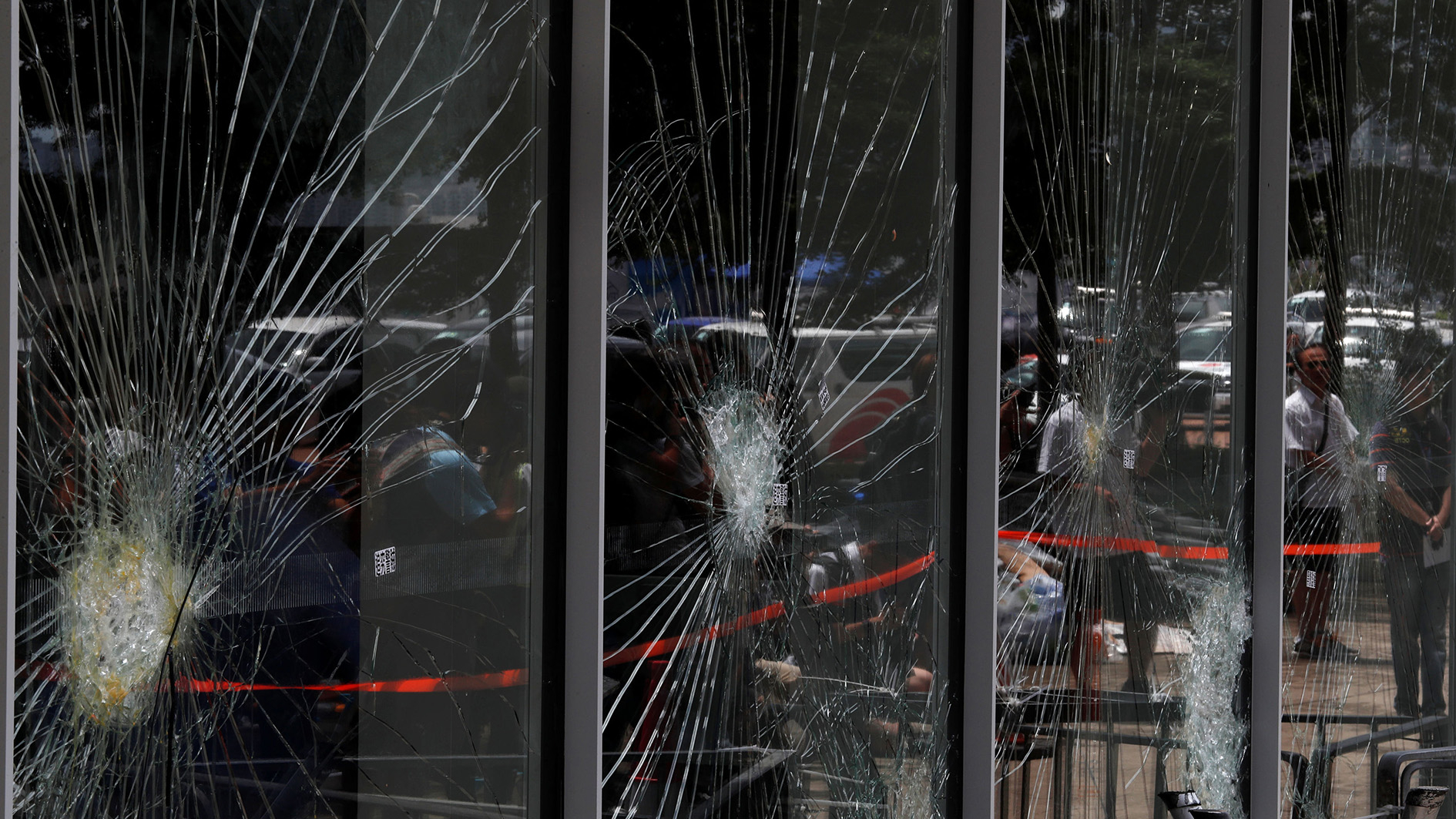

July 21 was a black day in the history of China's Hong Kong Special Administrative Region (SAR) when violent acts perpetrated at the Liaison Office of the Central People's Government. While some protesters maliciously surrounded and tried to storm the office, some even smeared the Chinese national emblem and painted insulting words on the walls outside of the office. But who is behind such riots?
Victor Zhikai Gao, vice president of the Center for China and Globalization, said that even if there're some people in Hong Kong who really want to bring back stability, there're other forces beyond Hong Kong. As a current affairs commentator Einar Tangen held: "There are outside influences who are cheering on, if not directly supporting, these types of violent activities," adding "The irony is that many of the groups and people who are supposedly cheering these on, the professionals, the expats in Hong Kong, will be the first ones to leave, because they're concerned about security, they're concerned about what will happen if Hong Kong continues in this direction, whilst these young people, these people who have been radicalized will not be able to leave."
Gao pointed out that the silent majority in the region has actually delivered a clear message that "they still want rule of law, they want to maintain stability, they want to maintain stable business environment so that Hong Kong can continue to prosper," emphasizing that "to protect rule of law and to allow demonstration and protest to proceed in a peaceful manner is the key for the future of Hong Kong."
According to Gao, American business interests will suffer from the turmoil and instability in Hong Kong. It will be in the interest of all countries in the world if Hong Kong still maintains stability.
Professor Thom Brooks, dean and chair of Law and Government at Durham University, said that "looking from British perspective, the stability and security of Hong Kong are very important. There're enormous economic interests that Britain has in Hong Kong's prosperity. Hong Kong's stability and economic security is particularly of deep interest to the British."
Tangen, however, called the furious Hong Kong youth rioters the "victims" of wealth distribution, stuck in hopelessness, poverty, and without affordable homes and good jobs, they have to turn around and blame the Chinese mainland. However, the reality is that Hong Kong has made tons of money over the last 30 years, but it hasn't been distributed. Those at the top have taken all, and those at the bottom, in the middle have got nothing.
"Hong Kong should adopt a Singapore-like model, guaranteeing these people, taking land from those who have kept it off the market and giving to those who need it, suggested Tangen.
Meanwhile, Gao stressed that law is the bottom line, "No matter how angry those young people in Hong Kong are, they have no right to violate rule of law and instead they should act in democratic and legal way," hoping that the Hong Kong SAR government and the central government will be more resolute.
(If you want to contribute and have specific expertise, contact us at opinions@cgtn.com.)

Copyright © 2018 CGTN. Beijing ICP prepared NO.16065310-3
Copyright © 2018 CGTN. Beijing ICP prepared NO.16065310-3